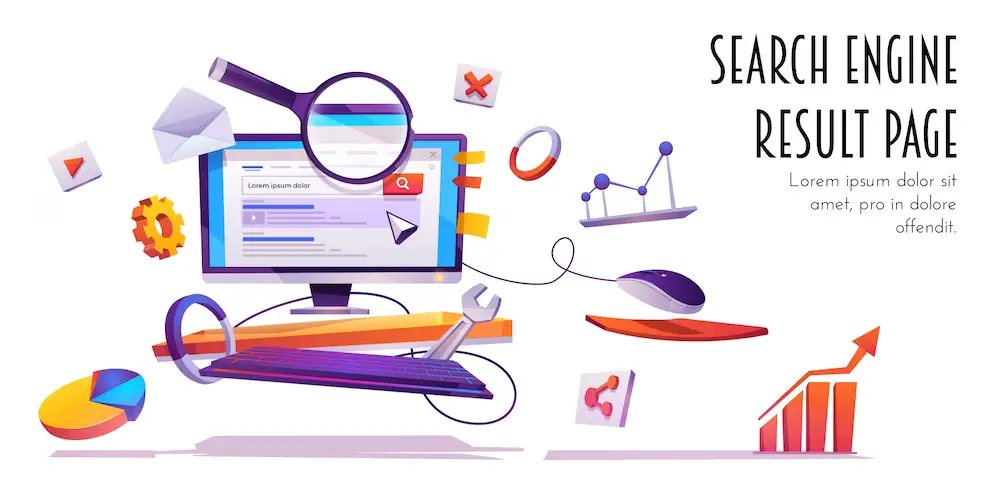In today’s digital world, having a website is not enough. To succeed online, you need to be easily discoverable by your target audience. It is where Search Engine Optimization, or SEO, comes in. But what is it?
In a nutshell, it optimizes your website to rank higher on search engine result pages. Understanding its different types is crucial to make the most out of it.
In this article, we will take you through the differences between on-page, off-page, and technical SEO and what role each one plays in your social success. Additionally, we will also cast light on why is technical SEO important and how on-page and off-page SEO can level up the reach of your business.
Contents
A mini-guide to technical SEO
Firstly, what is technical SEO?
It is optimizing your website’s technical elements to improve its search engine visibility. These elements generally include the website’s speed, mobile responsiveness, architecture, URL structure, and index. By implementing technical SEO, you can increase your reach, user experience, and overall performance.
Here are some points to put into action.
1. Mobile-friendliness
Around 92.1% of internet users use their mobile devices to browse the web. So, you need to ensure that your website is optimized for small screens loading speed is low, along with a user-friendly UI and clear CTA buttons.
2. Website’s page speed
Page speed significantly impacts user experience and search engine visibility. Remember to optimize images, minimize HTTP requests, and use a content delivery network (CDN) to improve your website’s page speed.
3. Structured data
Structured data helps search engines better understand your website’s content. As a result, it significantly improves your ranking and enhances your search engine result appearance.
4. Website Security
Security is a top priority for search engines, and having a secure website also helps to improve your online presence. Ensure your website has an SSL certificate and its URLs start with “https”.
Everything you need to know about on-page SEO
Technical on-page SEO means optimizing individual web pages to improve their position in search engine results and attract more relevant traffic to your website.
While the primary objective is to make your pages crawlable and indexable by the search bots, this part of SEO mainly attempts to make your website appealing to visitors.
Here are some crucial pointers that you should keep in mind.
1. Content
High-quality content is one of the most critical factors in on-page SEO. It should be unique, relevant, and valuable to your target audience. Ensure your content includes relevant keywords and phrases your audience is searching for.
2. Title tag
The title tag is the text that appears at the top of a web browser and search engine results. Search engines primarily rely on the keywords in title tags when looking for information regarding a topic. Hence, it should accurately describe the page’s content and include suitable keywords to pass the test.
3. Meta description
The meta description is the short snippet of text that appears under the title tag in search engine results. Search engines use these to verify whether the search bots should encourage people to click through to your site from search results.
4. Header tags
Header tags (H1, H2, H3, etc.) are HTML elements that highlight the importance of the information on your page. Ensure you don’t miss out on using header tags to structure your content for better grades by the search bots.
5. URL structure
Your page’s URL should be short, descriptive, and include the right keywords. Quick tip – use hyphens to separate words in your URL rather than underscores or spaces. It makes a substantial positive difference.
6. Image optimization
People often dodge the significance of image file names and alt tags. However, including keywords even in your alt tags helps your images appear separately in search engine results and drive more traffic to your site.
7. Internal linking
Linking is a crucial element of SEO. It uses anchor texts to drive to other pages on your website, making it easier for search engines to explore, crawl and index your entire webpage. It also helps to boost your authenticity towards a specific content audience.
8. Mobile Optimization
With mobile devices taking over the world by a wave, ensuring your website is mobile-friendly is vital. Use a responsive design for your site to adapt to different screen sizes and optimize your content and images accordingly.
While other factors like core web vitals, page speed, and navigation also significantly contribute to the performance of your on-page SEO, taking proper care with the above elements is a great way to get started and excel in it.
All about off-page SEO
Now, what is SEO off-page? It refers to the activities and tactics used outside the boundaries of your website to improve your search engine rankings. It mainly involves leveraging third-party websites to bring traction to your page.
These third-party websites talk about your brand on their page, redirecting their audience toward your website. Here are some factors to consider to master off-page SEO.
1. Backlinks
Backlinks are one of the most critical tools in off-page SEO. A backlink is a link from another website to your website. The quality and relevance of the backlinks are essential factors in determining your search engine rankings.
2. Social media
By creating and sharing high-quality content on social media, you can attract more traffic to your website and increase your brand’s visibility. Use relevant keywords and hashtags in your social media posts to improve your ranks.
3. Online directories
Listing your business in online directories helps improve your off-page SEO. Make sure to list your business in relevant directories, be it local business directories or industry-specific ones.
4. Influencer marketing
Partnering with influencers in your industry can significantly improve your off-page SEO. By having influencers promote your brand or products, you can attract a large pool of users to your webpage, enhancing the possibility of a higher SEO rank.
5. Brand mentions
Even without a direct link, brand mentions can still help improve your off-page SEO. So make sure to monitor mentions of your brand and build awareness and improve your search engine rankings.
It’s interesting how the domain and applicability of SEO can go well beyond the limits of your website. But doesn’t that sound like a must-try to ace your game?
Conclusion
On and off-page SEO and technical SEO are all critical elements of your website that play different roles in improving your website’s search engine visibility. Combining all three types with the help of technical SEO consultants can help you achieve a holistic approach to maximize the impact of your SEO efforts.
We hope this blog post has provided valuable insights and actionable tips to take your website’s SEO to the next level. Best of luck with your SEO endeavors!



